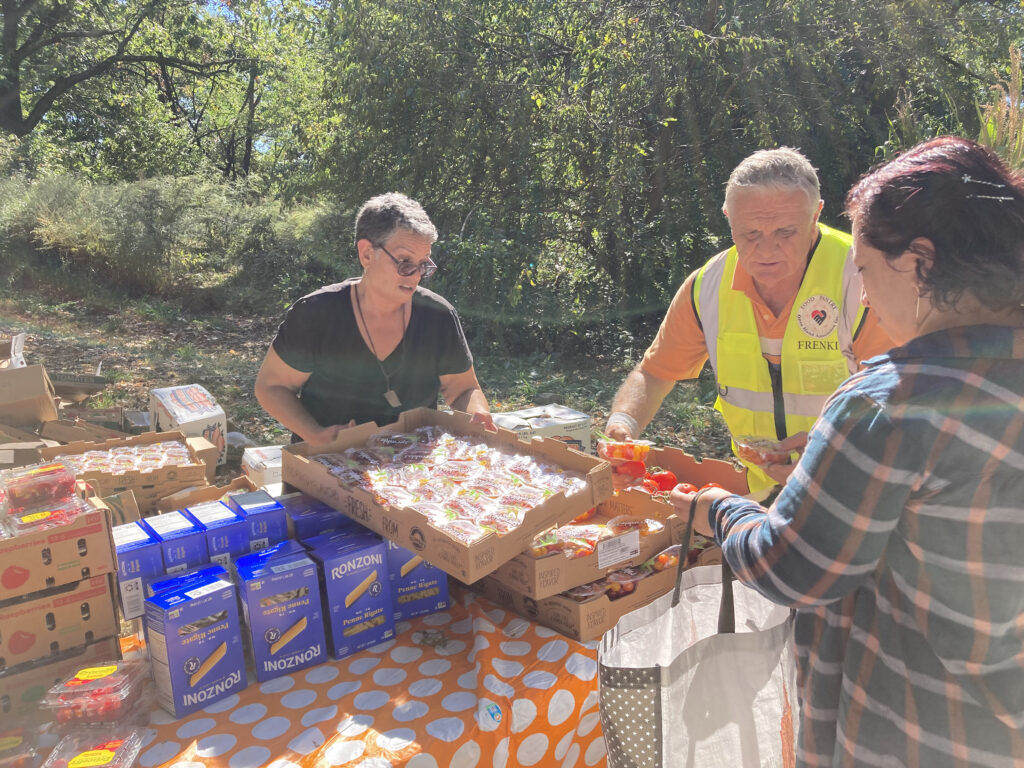
Photo by Síle Moloney
When it comes to taking care of our heart, what we put on our plate matters. Research has consistently shown that eating more plant foods and less animal foods can improve heart health, lower cholesterol, and even reduce the risk of heart disease. Plant foods are fruits, vegetables, whole grains, seeds and nuts, and beans and legumes. Animal foods include meat and fish, eggs, milk and foods made from milk.
A “Plant-Based Diet” describes eating mostly plant foods and smaller amounts of animal foods. You don’t need to go vegetarian (no meat or fish) or vegan (no meat, fish, eggs, milk products) to improve your heart health! Eating more plants, in small ways, can make a big difference. The American Heart Association (AHA) emphasizes the importance of eating a variety of nutrient-dense plant foods.
These foods are packed with fiber, antioxidants, vitamins and minerals that help lower blood pressure, reduce inflammation, and improve cholesterol levels. In contrast, a diet high in animal foods and processed foods is high in saturated fat, salt, and sugar and can lead to heart disease. An example of animal food is a bacon, egg, and cheese sandwich and an example of processed food is potato chips or snack cakes.
The American College of Lifestyle Medicine (ACLM) agrees and recommends plant-based diets as a powerful tool for both preventing and treating heart disease. Studies show that plant-based eating patterns are safe and effective for children and adults.
Looking to add more plant food and reduce animal food? Unlike vegan and vegetarian diets (no meat allowed), a plant-based diet allows you to focus of plants and still eat moderate amounts of your favorite meats and other animal products. It’s more flexible and sometimes is called a “flexitarian” diet! Studies show that even reducing meat intake a few times a week and adding more plants can significantly lower the risk of heart disease.
Getting Started:
Reduce the meat: Serve yourself a smaller portion of meat at dinner (size of your palm) and increase low-carb vegetables to two cups (size of two fists). Click here for tips. This can be raw vegetables like salad, or steamed, boiled, or roasted vegetables with your favorite seasonings. Brightly colored fruits and vegetables like berries, spinach, and carrots are especially rich in heart-protecting nutrients.
The key is to make the veggies the star of your meals and to still enjoy the meat and starches. Let’s make the most of those starches: Use brown rice or bulgur and whole grain bread in place of white rice and white bread for a fiber boost. Or enjoy sweet potatoes, pumpkin, or butternut squash as your starch.
Skip the meat: Start by doing “Meatless Mondays” at dinner once or twice a week and exploring heart healthy recipes like quinoa-stuffed peppers or black bean tacos. If you have a favorite chili or stew recipe, try using lentil or beans in place of meat. Beans, quinoa, lentils and soy foods (Tofu, tempeh, and imitation meats) are all packed with plant protein. Check out some resources here.
Dairy: Consider plant alternatives to dairy products, like using almond milk instead of regular milk in coffee, cereal or smoothies. Go nuts for healthy fats! Incorporate heart healthy fats from sources like avocados, walnuts, and olive oil instead of butter or processed oils.
Making these changes can be easy and budget friendly. Check out the ACLM sample menu plan at here for a week’s worth of simple, affordable plant-based meals. Additionally, the AHA has practical tips on meatless recipes here to make transitioning to a plant-based diet easier. A diet rich in plants protects your heart, helps you lose or maintain weight, lowers risk of diabetes and improves energy levels.
Remember, the goal isn’t perfection; it’s progress. Whether you’re ready to be a vegetarian or simply add more plants, every bite counts toward a healthier heart and a happier you. You can find more heart health resources on how to stay heart smart by visiting https://montefioreeinstein.org/heart/awareness, or email us at healtheducation@montefiore.org.
Monica Kelly, MS, RD, CDN, CNSC is associate health and wellbeing manager at Montefiore Einstein.




